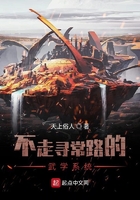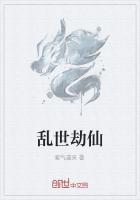After the rush and the scrap comes the organisation of the captured trench."Digging in" completes the cycle of modern infantry fighting.You may consider this the first or the last phase of an infantry operation.It is probably at present the least worked-out part of the entire cycle.Here lies the sole German superiority; they bunch and crowd in the rush, they are inferior at the scrap, but they do dig like moles.The weakness of the British is their failure to settle down.they like the rush and the scrap; they press on too far, they get outflanked and lost "in the blue"; they are not naturally clever at the excavating part of the work, and they are not as yet well trained in ****** dug-outs and shelter-pits rapidly and intelligently.
they display most of the faults that were supposed to be most distinctively French before this war came to revolutionise all our conceptions of French character.
2
Now the operations of this modern infantry, which unlike any preceding infantry in the history of war does not fight in disciplined formations but as highly individualised specialists, are determined almost completely by the artillery preparation.
Artillery is now the most essential instrument of war.You may still get along with rather bad infantry; you may still hold out even after the loss of the aerial ascendancy, but so soon as your guns fail you approach defeat.The backbone process of the whole art of war is the manufacture in overwhelming quantities, the carriage and delivery of shell upon the vulnerable points of the enemy's positions.That is, so to speak, the essential blow.
Even the infantryman is now hardly more than the residuary legatee after the guns have taken their toll.
I have now followed nearly every phase in the life history of a shell from the moment when it is a segment of steel bar just cut off, to the moment when it is no more than a few dispersed and rusting rags and fragments of steel--pressed upon the stray visitor to the battlefield as souvenirs.All good factories are intensely interesting places to visit, but a good munition factory is romantically satisfactory.It is as nearly free from the antagonism of employer and employed as any factory can be.
The busy sheds I visited near Paris struck me as being the most living and active things in the entire war machine.Everywhere else I saw fitful activity, or men waiting.I have seen more men sitting about and standing about, more bored inactivity, during my tour than I have ever seen before in my life.Even the front line trenches seem to slumber; the Angel of Death drowses over them, and moves in his sleep to crush out men's lives.The gunfire has an indolent intermittence.But the munition factories grind on night and day, grinding against the factories in Central Europe, grinding out the slow and costly and necessary victory that should end aggressive warfare in the world for ever.
It would be very interesting if one could arrange a meeting between any typical Allied munition maker on the one hand, and the Kaiser and Hindenburg, those two dominant effigies of the German nationalists' dream of "world might." Or failing that, Mr.
Dyson might draw the encounter.You imagine these two heroic figures got up for the interview, very magnificent in shining helms and flowing cloaks, decorations, splendid swords, spurs.
"Here," one would say, "is the power that has held you.You were bolstered up very loyally by the Krupp firm and so forth, you piled up shell, guns, war material, you hoped to snatch your victory before the industrialisation and invention of the world could turn upon you.But you failed.You were not rapid enough.
The battle of the Marne was your misfortune.And Ypres.You lost some chances at Ypres.Two can play at destructive industrialism, and now we out-gun you.We are piling up munitions now faster than you.The essentials of this Game of the War Lord are idiotically ******, but it was not of our choosing.It is now merely a question of months before you make your inevitable admission.This is no war to any great commander's glory.This gentleman in the bowler hat is the victor, Sire; not you.Assisted, Sire, by these disrespectful-looking factory girls in overalls."
For example, there is M.Citroen.Before the war I understand he made automobiles; after the war he wants to turn to and make automobiles again.For the duration of the war he makes shell.
He has been temporarily diverted from constructive to destructive industrialism.He did me the honours of his factory.He is a compact, active man in dark clothes and a bowler hat, with a pencil and notebook conveniently at hand.He talked to me in carefully easy French, and watched my face with an intelligent eye through his pince-nez for the signs of comprehension.Then he went on to the next point.















